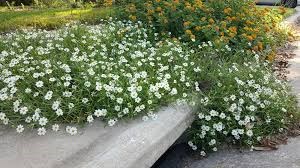I recently read an excellent article in the Winter 2018 Garden Design magazine about giving back to our environment with our gardens.
The article reminds us of the huge value of populating our yards and our community with plants. We all understand that without plants there would be no animals. Plants create the oxygen rich environment we need to survive. Plants play an important role in providing homes and food for a wide variety of pollinators. They help us with managing our watersheds and adding biodiversity to our environment.
We quite often hear about the decline of the honey bees, but also included are our local native bees (approximately 4,000 species that provided pollination before Europeans imported the honey bees). The majority of our pollinators are bees who need pollen and nectar to reproduce.
Think about adding goldenrod, asters, willows, yarrow, sneezeweed, California poppy, harebells, Canada milk vetch or tansy phacelia to your gardens.
Mindful gardening should also include thinking about how we affect our watershed. We need plants to help water replenish the water table rather than running off into drains and streets. Choose plants with deep, fibrous root systems such as a spread of ferns, coral bells, Allegheny pachysandra and blackfoot daisy which will help hold water on site.
Deep rooted grasses and perennials will also help improve soil health by pumping tons of carbon into our soil.
And finally, mindful gardening will increase the species of birds, butterflies and desirable wildlife that carry on their lives in our gardens. For example, plants that provide food for caterpillars, which feeds the birds, are so important in playing a vital role in a healthy sustainable ecosystem.
Lynda Pasacreta is the current president of the Richmond Garden Club. Learn all about urban beekeeping at our March 28th meeting, 7pm, Richmond Cultural Centre, 7700 Minoru Gate. For more information, visit richmondgardenclub.ca.



